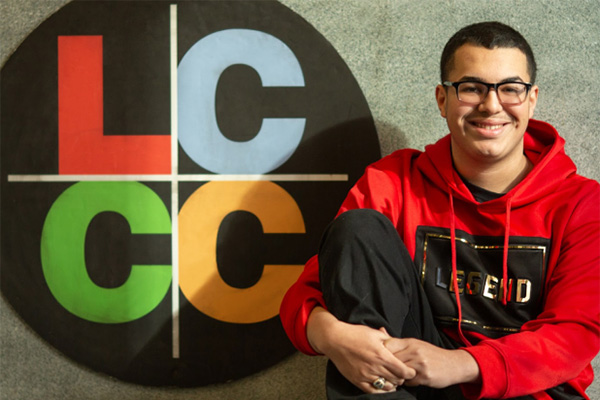Teacher Resources
Annotated Science Teacher Websites
The links to these sites have been updated on June 21, 2024
https://apcentral.collegeboard.com/home
If you are starting out, you should go to the College Board’s AP Central website. This site has a great deal of information on it for new and existing teachers of both Advanced Placement and Pre-AP courses.
https://apcentral.collegeboard.com/apc/public/courses/teachers_corner/2117.html
For the AP Central Biology Homepage, with a Web Guide with sites grouped according to the major content areas from the Biology Topic Outline, Teaching Tips, Curriculum Planning Guides, plus a list of general sites of interest to Biology teachers.
https://apcentral.collegeboard.com/apc/public/courses/teachers_corner/2119.html
For the AP Central Chemistry Homepage, with a Web Guide with sites grouped according to the major content areas from the Chemistry Topic Outline, Teaching Tips, Curriculum Planning Guides, plus a list of general sites of interest to Chemistry teachers.
https://apcentral.collegeboard.com/apc/public/courses/teachers_corner/2128.html
For the AP Central Environmental Science Homepage, with a Web Guide with sites grouped according to the major content areas from the Environmental Science Topic Outline, Teaching Tips, Curriculum Planning Guides, plus a list of general sites of interest to Environmental Science teachers.
https://apcentral.collegeboard.com/apc/public/courses/teachers_corner/2262.html
For the AP Physics B Homepage, with a Web Guide with sites grouped according to the major content areas from the Physics B Topic Outline, Teaching Tips, Curriculum Planning Guides, plus a list of general sites of interest to Physics teachers.
https://apcentral.collegeboard.com/apc/public/courses/teachers_corner/2263.html
For the AP Physics C: Electricity & Magnetism Homepage, with a Web Guide with sites grouped according to the major content areas from the Physics C: Electricity & Magnetism Topic Outline, Teaching Tips, Curriculum Planning Guides, plus a list of general sites of interest to Physics teachers.
https://apcentral.collegeboard.com/apc/public/courses/teachers_corner/2264.html
For the AP Physics C: Mechanics Homepage, with a Web Guide with sites grouped according to the major content areas from the Physics C: Mechanics Topic Outline, Teaching Tips, Curriculum Planning Guides, plus a list of general sites of interest to Physics teachers.
Pennsylvania Science Teachers Association
This is the portal to PSTA providing information about conferences, teacher resources, student competitions, standards alignment, and more.
National Association of Biology Teachers
This site provides free teacher resources, such as links to biology sites listed by topics and a buyer’s guide for materials and equipment, as well as workshop and conference information.
National Science Teachers Association
This is the portal to NSTA providing links to books and resources, professional development, science standards, and more.
National Science Foundation
This is the homepage for NSF, providing information about new scientific discoveries, multimedia galleries, learning resources, and more.
NOAA
The National Oceanic and Atmospheric Administration provides access to explore our climate and environment using satellite imagery and models with pictures, podcasts, and videos.
U.S Geological Survey
This is the link to the education page of the USGS website providing activities for elementary through colleges students. Maps, lectures, geology of National Parks, videos, etc. provide information about ecosystems, natural resources, climate and land use change, and more.
The Geological Society of America
Earth science for K-16 Teachers provides free lesson plans, posters and CD-ROMs for purchase, information on field experiences, and more.
http://phet.colorado.edu/index.php
This site contains hundreds of Interactive Simulations that are good for physics, biology, and general chemistry. Students can manipulate the simulations to control multiple variables and evaluate the effects on the system. There are thousands of teacher-created POGIL(Process Oriented Guided Inquiry Lessons) activities that help students to “discover” the scientific concepts.
NASA
This is the Teacher’s Page link to the National Aeronautics and Space Administration site providing access to an A-Z listing of NASA-related websites, videos, microgravity experiments, and more.
National Institute of Health
The site provides lessons on cell biology and cancer, human genetic variation, brain function and addiction, sleep disorders, and more.
University of Utah – Genetics Lessons
This site is a learning center for various aspects of genetic science that allows students to explore basic concepts through animated video lessons, followed by an interactive summary of the material. Also included are virtual biotechnology labs on DNA extraction, electrophoresis, PCR, and DNA microarray.
Science News for Kids
This website publishes articles aimed at kids aged 9 – 14. The articles are timely, interesting and cover a wide variety of topics, such as: chemistry and materials, the environment, the human body, and space and astronomy. Each article also includes links to relevant books and websites, word definitions, and questions about the article, as well as teacher resources. Can use articles that relate to the topics you are studying as small group discussion pieces, as written, graded responses, or as student presentations to their classmates for a grade.
Agriculture in the Classroom
This site provides facts about state agriculture, lesson plans to incorporate agriculture applications into the regular curriculum, ag-based STEM projects, and more.
Science Education Resource Center at Carleton College
This site provides connections with a community of teachers as they share what really works in their classrooms. Shared activities, projects, classroom visuals, and discussion groups are just a few of the resources available.
Women in Science and Engineering
Pioneering Women in Science
There have been, and continue to be, numerous highly successful female engineers and women in science. While their accomplishments are well-known, their names may not be universally recognized by those outside of their field. Through education, people can acknowledge and celebrate the contributions of famous female engineers and, as a result, encourage more girls to pursue engineering as a future career path.

